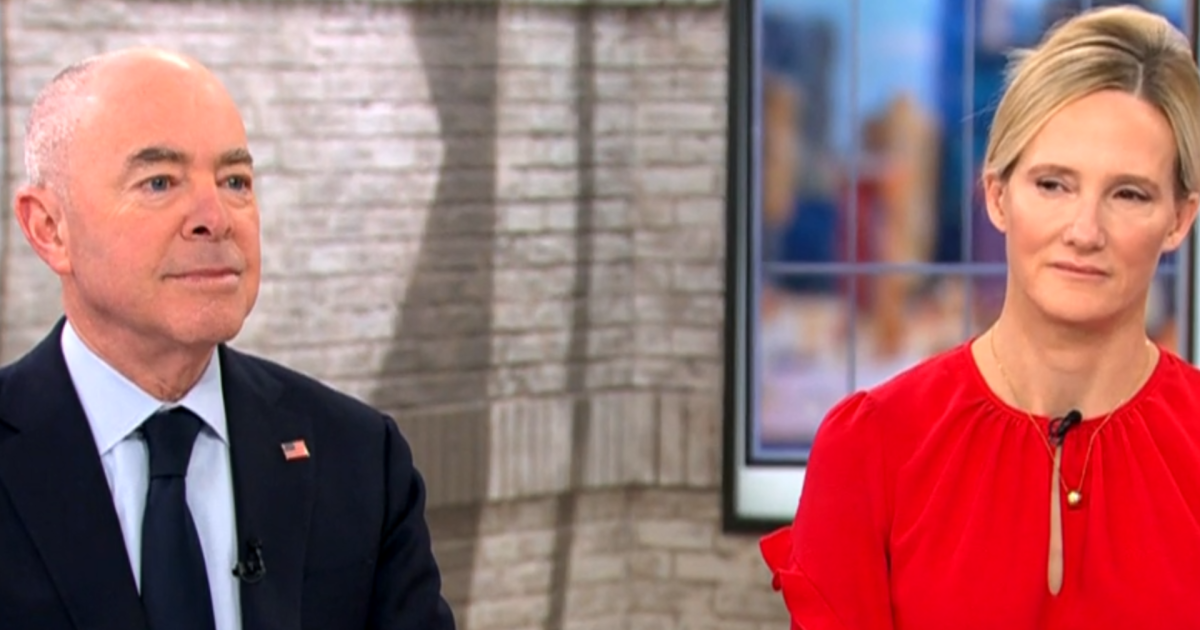How to know when to keep your sick child from school
Most parents have been there. Your child has a runny nose and didn’t sleep well the night before. In the morning, it’s time to decide: Do you keep him home to prevent the illness from getting worse or send him to school and hope for the best?
A new national poll from the University of Michigan C.S. Mott Children’s Hospital sought to gauge parents’ opinions on the matter and found that for many, deciding whether or not to keep their child home from school can be a nerve-wracking experience.
“It’s a very common societal problem, having to make decisions whether or not to send your kids to school when they’re not feeling well,” lead author and Mott poll co-director Dr. Gary Freed, told CBS News. “What the poll seeks to do is to report on public perceptions of common issues that are facing both parents and others with regard to the care of children.”
The results of the survey showed that parents rely on three main criteria to decide if their child is too sick for school -- whether the child’s condition could get worse, whether the illness may spread to classmates, or whether their child will miss important work.
Symptoms also played a major role in making the decision, with 80 percent of parents saying they are not likely to send a child to school with diarrhea. Fifty-eight percent said they would keep a child home if they vomited once, and 49 percent wouldn’t send their kid to school with a slight fever.
Few parents said they wouldn’t send their child to school with red watery eyes but no fever (16 percent), or a runny nose, dry cough and no fever (12 percent).
Freed says the findings suggest the comfort of the child and whether the symptoms would interfere with the child having a successful school day are major factors in deciding whether or not to keep a kid home. “Things like diarrhea and vomiting, for example, can cause a lot of self-consciousness on the part of a child, as well as markedly disrupt a school day,” he said.
The decision can be further complicated when keeping a child home directly affects the parents or wellbeing of the family. The poll found that 11 percent of parents were worried about missing a day of work, while 18 percent were concerned about not being able to find a caregiver.
The American Academy of Pediatrics says symptoms that may warrant a sick day at home or visit to the doctor include:
- Persistent fever (temperature higher than 100.4 degrees Fahrenheit)
- Severe sore throat that lasts for more than 48-hours, especially when accompanied by a fever
- A significant rash, particularly when other symptoms are present
- Large amounts of discolored nasal discharge
- Severe ear pain
- An uncontrolled cough
- Diarrhea
- Severe headache, especially with a fever.
CBS News medical contributor Dr. Tara Narula says that although it’s not always straightforward, most of the time parents can rely on their own instincts when deciding whether or not to keep a sick child home.
“Different states have different rules. Different schools have different rules but at the end of the day a lot of it is really common sense and do you know your kid and what you observe of them and their behavior,” she told “CBS This Morning” on Tuesday.
If children are listless, lethargic, or not breathing well, accompanied by any other symptoms, Narula says that may be a sign to keep them home.
Finally, parents can also call their child’s pediatrician for guidance if they’re having trouble making the decision.




